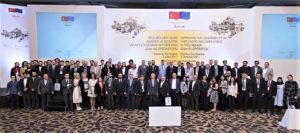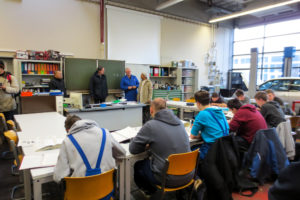
Technical Assistance for Implementation of Civil Society Dialogue and Civil Society Support Programmes (TR2015/DG/01/A5-01/001)
The overall aim of the project is to increase bilateral exchanges and cooperation between CSOs in Turkey and the EU at local, regional and national levels, to promote awareness raising initiatives on importance and benefits of membership of Turkey to the EU within Turkey and EU and on

Civil Society Facility 2018 – Sivil Düşün IV
This project is the fourth phase of the Sivil Düşün (‘Think Civil’ in English) programme, which is being funded under the Civil Society Facility of Turkey. The ‘Sivil Düşün’ programme is designed to strengthen the structures and values of participatory democracy. It supports activities that strive to contribute

Technical Assistance for Improving the Adaptability of Employers and Employees in TR33
Qualified individuals mean a powerful region and a powerful region requires investing in human resources. Hence, this assignment aimed to encourage employers and employees of SMEs in the TR33 Region (Kütahya, Afyonkarahisar, Manisa, and Uşak provinces), particularly by promoting lifelong learning. More specifically, the project’s purpose was to

Ministry of Development Training Programme
Organisations need technical assistance with funds and areas like good management practices; monitoring reports; training programmes on monitoring and evaluation; objectives and indicators, etc. Therefore, the project aimed to provide technical assistance to the Ministry in the field of fund management to the Standing Committee for Economic and

Strengthening of an Integrated Strategic Approach to Increase the Efficiency and Productivity of IPA Funds during the Third Period (2021-2027)
This project’s main objective is to further increase and consolidate administrative capacity of the Turkish administration for more effective and efficient management and absorption of IPA funds, in addition to strengthen the capacity of NIPAC and other relevant institutions in the area of strategic planning and programming, proper

Skills Development and Innovation Support Project
The labour market demands quick responses to changes in the market and the demographic situation. Within this scope, the assignment aimed to provide technical assistance to the Government of Macedonia and the Ministry of Education and Science (MOES) to reform the 4-year Secondary Technical and Vocational Education and

